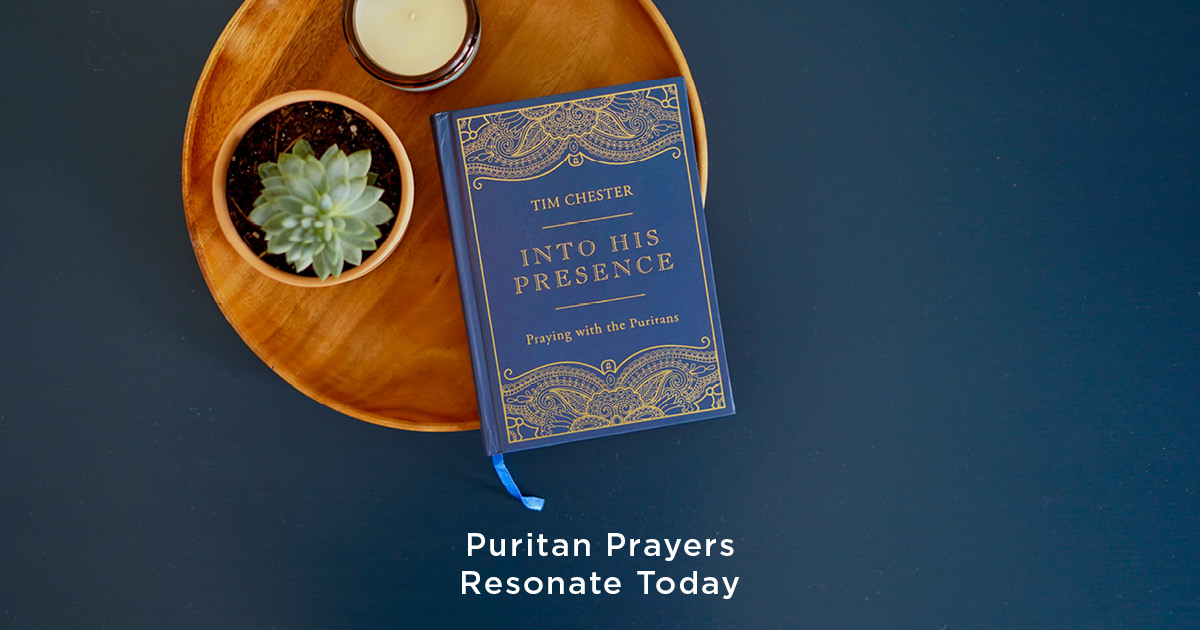
“Without often seeking God, the vitality of the soul is lost.
We may as well expect a harvest without sowing, as any
liveliness of grace where there is no seeking God.”
- Thomas Manton
The Puritans were people of prayer. Many Puritan pastors rose early to pray, like Joseph Alleine who spent the time between 4am and 8am in personal worship, and felt ashamed if he heard the blacksmith at work before he was at prayer. Each year Isaac Ambrose took himself off into the woods for a month to spend uninterrupted time alone in prayer and meditation. Puritan families were encouraged to read the Scriptures and pray together each morning and evening, with pastors providing model prayers for those who were unsure where to begin.
Yet the Puritans were not fixated on prayer itself; they were fixated on God. Prayer was merely the means; it was God himself who was their goal. Their spirituality was characterised by a big view of God. They felt keenly the vast gulf between God’s holiness and human sinfulness—a gulf into which a Christian might have plunged were it not for God’s grace to us in Christ. Again and again in their prayers we see a recognition of the depths of our sin enlarging a vision of the heights of Christ’s love.
"It’s true that Puritans were serious about their faith. But, as the prayers in Into His Presence reveal, they also enjoyed life."
Their big vision of God did not mean their God was remote. Quite the opposite. His activity permeated the whole of life. The Puritans had a high view of God’s providence. All their comforts came from his hand and were to be received with gratitude. But hardships, too, were part of his mysterious design. All of life—from daily prayers to work and home life—was to be lived before God, with his help.
It’s true that Puritans were serious about their faith. But, as the prayers in Into His Presence reveal, they also enjoyed life. They expressed gratitude to God for food, fun and friendship. Even more, they enjoyed God. They pursued the pleasures of God.
Puritanism began in England in the second half of the 16th century, during the reign of Elizabeth I, as a reform movement within the Church of England. Its passion was to see a church shaped by the Bible with a gospel of justification by faith alone. Many of its early leaders had escaped the persecutions of Mary I in the 1550s through exile in Europe. Here they were strongly influenced by the Reformed tradition. Their hopes for spiritual renewal were dashed when James I, Elizabeth's successor, showed no interest in radical reform. This was when the Pilgrim Fathers set sail for safety in America. Then, under Charles I, Puritans were often persecuted.
"[The Puritans'] spirituality was characterised by a big view of God."
The Commonwealth of Oliver Cromwell gave Puritans a voice in national affairs. But it was short-lived. The monarchy was restored in 1660, and in 1662 hundreds of Puritans were forced out of the Church of England in “the Great Ejection”.
Many went underground, holding secret meetings (called “conventicles") or gathering congregations in their homes. But by the end of the 17th century the movement had ceased to exist as a distinct force in national life.
Yet the spirituality of Puritanism lives on in its writings. Here we find a rich store of treasures which continue to provide both theological clarity and pastoral comfort. These prayers are not historical curiosities; they are powerful expressions of faith that can enrich our spiritual lives.
In Into His Presence I’ve organised puritan prayers under headings that flag up when and how they might be used. For example, Prayers for the Church, Prayers for Times of Need and Prayers for the Lost. They’re designed to be put to work. You could read one a day, but you can also turn to them in need. You could use them on your own, but you can also use them in public worship.
The Puritan Ezekiel Hopkins describes God as “the great proprietor”. Everything we could desire—whether spiritual or temporal blessings, whether greater faith, love, patience or humility—are on the shelves in God’s great department store (or in the catalogue of his online outlet). And prayer, says Hopkins, is “a means appointed by God to obtain those blessings and mercies of which we stand in need”. Then he changes the imagery:
“Our prayers and God’s mercy are like two buckets in a well. While the one ascends, the other descends. So, while our prayers ascend to God in heaven, his mercies and blessings descend upon us.”
In this book, there are 80 prayers to fill our buckets with before we send them up to God, and wait for his bucket of blessing to come down to us.
This article is an extract taken from Into His Presence: Praying with the Puritans, by Tim Chester. This collection of eighty theologically rich and beautifully written prayers and meditations, adapted from Puritan prayers and prose, is great for personal use or use in corporate worship